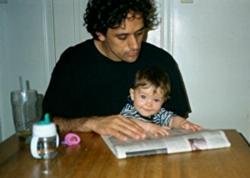One of the most surprising things, for me, about becoming a working writer, has been the discovery of how social a profession it is.
Back in adolescence, dreaming about someday Publishing Great Things, I imagined a solitary struggle. The writer forges Art in the fire of her own consciousness, then releases it fully formed upon the world.
Now it is true that writing, most days, is a lonely occupation. We face the page alone. But the reverse, it turns out, is also true. Writing is intensely social, a sea of conversations — in print, on the screen, in person — writers reacting to writers, works quarreling with each other, writers seeking each other's advice, solace, company, and critique. Writers write each other fan mail, see each other at workshops and conventions and critique groups, debate endlessly online, and trade critiques of works in progress.
This part of the writing process is generally invisible to readers. So for these blog posts — this autobiography-of-a-story, this "The Making of The Guy Who Worked For Money" — I thought it might be interesting to offer a window into this raucous, rambunctious, fervid backstage world.
It is also — relevantly — a gift economy. Generally speaking, critiques are gifts(1). As gifts, they bind givers and receivers together: exchanging critiques is one of the ways that friendships between writers are formed. A good critiquing relationship is precious.
Critiquing binds you to the work as well as the person. I am almost as delighted (and less conflictedly delighted) when a work that I critiqued — like "Pride and Prometheus", or "The Merchant and the Alchemist's Gate", or "Little Brother" — gets on an award ballot, as when one of my own does. If my stories are my children, then stories I've critiqued are my godchildren.
So I asked five of the writers who critiqued this story — Haddayr Copley-Woods, David Moles, Jackie Monkiewicz, Shoshana Rosenbaum (who is also my sister), and Meghan McCarron — if I could post here their emailed critiques (as well as my sometimes argumentative responses). Note that all of these are hasty unedited emails in response to my pleas for before-deadline help; I didn't have the idea of posting them until afterwards.
(This isn't even everyone who critiqued the story! Among others, Mary Robinette Kowal took time in the middle of Readercon to read the penultimate draft and spend a last-minute lunchtime insisting on an ending with emotional impact.)
So:
Here is the original ready-for-critique draft (actually the fourth or fifth draft of the story, since I generally look for critiques only when I've taken the story as far as I can alone).
Here are the critiques.
And here, of course, is the final version.
[Crossposted to benjaminrosenbaum.com]
- Though there are places which formalize critique-swapping in the direction of an exchange economy.









